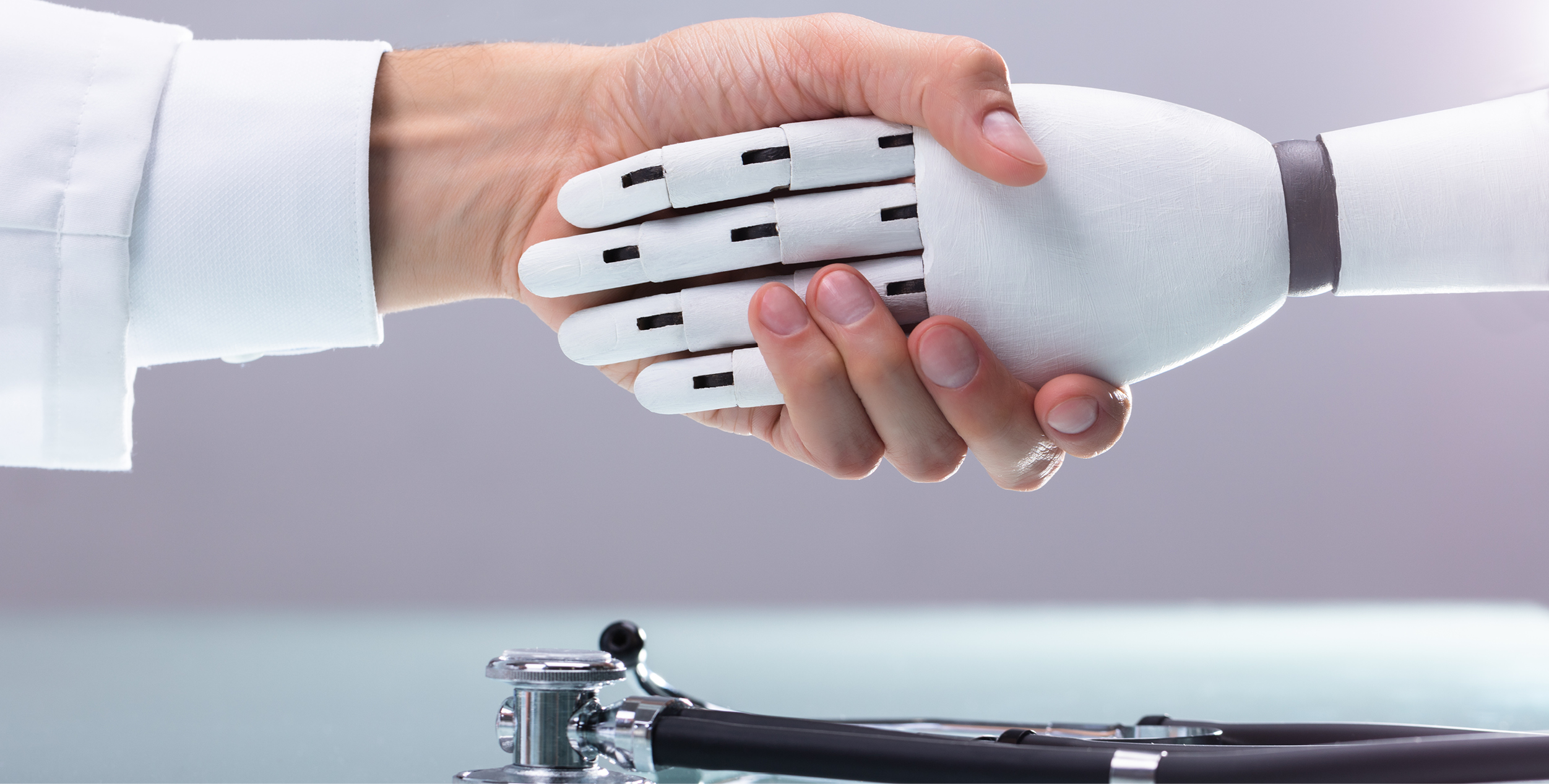As it grapples with the relentless surge in demand for its services, the National Health Service (NHS) – the cornerstone of the UK healthcare system – finds itself confronted with a growing list of complex challenges. Skyrocketing patient numbers, a critical shortage of staff, and limited resources, coupled with an array of systemic issues, underscore an unprecedented urgency for innovative, pragmatic solutions.
In the process of steering through these multifaceted issues, the NHS is exploring a trifecta of technological solutions: automation, artificial intelligence (AI), and robotic process automation (RPA).
With £240 million in funding recently being announced (specifically to make it easier for patients to see their GP), as well as the promise of AI-scheduled appointments and doctor note transcriptions, it looks as though these technological solutions are sweeping in to save the day. The overarching goal? A significant decrease in demand, enhancement of patient experiences, and a reduction of the overall service strain on the healthcare system (primarily achieved through preventative measures).
Harnessing technology for prevention and demand reduction
The transformative potential of AI, automation, and RPA isn’t a far-off future concept for the NHS. Instead, it’s a reality that is taking shape here and now. With a focus on preventative care, these technologies are spearheading a revolution within the NHS, from early disease detection to patient monitoring and strategic resource management.
Predictive analytics and proactive measures
The future of preventative healthcare within the NHS is being shaped by AI and predictive analytics. Advanced algorithms, capable of analysing vast amounts of data and identifying patterns, are being deployed to predict health risks, enabling early interventions. These AI systems scrutinise a wide range of personal and economic factors, including medical history, genetic information, lifestyle habits, socio-economic data, weather, and more, to provide medical experts with new perspectives and realisations to improve patient wellbeing.
This new forward-looking capability offers the NHS a profound advantage in addressing health conditions like diabetes or heart disease before they escalate, proactively reducing the demand for acute services.
Moreover, AI is transforming genetic research within the NHS, allowing for the early identification of genetic disorders and high-risk patients. This predictive capacity equips healthcare professionals to implement preventative measures sooner, thus, further reducing demand for the NHS’s services.
Automated patient monitoring and follow-ups
Automation within the NHS is pushing the boundaries of traditional healthcare, extending beyond the confines of hospital walls. Wearable technology and home monitoring systems are becoming increasingly prevalent, providing real-time data collection of patient vitals and facilitating instant alerts to healthcare providers when necessary. The role of automation extends even further, with automated systems being used for patient follow-up reminders, promoting adherence to medication schedules, and efficiently managing appointments. This heightened level of continuity in care not only results in better patient outcomes but also translates to fewer hospital readmissions, significantly reducing the overall demand on the service.
Moreover, automation is enhancing telemedicine within the NHS, enabling healthcare professionals to monitor and manage patients remotely. In a time where physical distancing is often required, telemedicine serves as a lifeline, reducing hospital visits and thus demand, while still ensuring patients receive the necessary care.
Now more than ever we are seeing the positive ‘symbiosis’ of human and machine; resulting in new wellbeing models and improved patient outcomes.
Efficient resource management through RPA
Robotic Process Automation (RPA) plays a pivotal role in managing demand within the NHS, particularly regarding the efficient use of resources. This technology combined with modern AI algorithms (Intelligent Automation) can accurately predict and execute upon the demand for hospital beds based on a myriad of patient data, ensuring resources are optimally allocated, as an example.
But the influence of intelligent automation extends beyond just hospital beds. It applies to the management of medical equipment, personnel distribution, and the coordination of transfers between healthcare facilities. This intelligent resource allocation alleviates pressure on the service, reducing waiting times, and improving the overall patient experience.
Furthermore, intelligent automation is proving instrumental in streamlining the administrative side of healthcare, a task that often consumes substantial time and resources within the NHS. By automating these processes, the NHS reduces administrative errors and frees up valuable time for healthcare workers to focus more on direct patient care.
The patient experience: Centering NHS care around the patient
While harnessing the power of AI, automation, and RPA, the NHS continues to place a strong emphasis on the enhancement of patient care. Technology is employed not just for its own sake, but for the tangible benefits it can bring to patients. This includes personalised care, increased patient engagement, and the reduction of wait times.
Personalised care through AI
Personalised care is a key component of the NHS’s vision for healthcare. AI is at the forefront of turning this vision into reality by providing a deeper understanding of individual patient needs, preferences, environmental influences, and risks. AI algorithms can predict how a patient will respond to specific treatments based on their unique ‘DNA’ of more informed health datasets, empowering NHS professionals to make the best initial treatment choices and adapt care plans to the individual.
Increased patient engagement with automation
Automation within the NHS is doing more than just improving efficiency—it’s enhancing patient engagement. Automated systems provide patients with personalised health reminders, appointment scheduling, and advice tailored to their specific needs. Additionally, secure digital platforms enable patients to easily access their health records, promoting proactive management of their health. This engagement not only improves patient adherence and outcomes but also leads to a reduction in service demand.
Reduced wait times through RPA
The influence of RPA on patient experience is extensive, particularly in reducing wait times within the NHS. With RPA effectively managing administrative tasks and hospital resources, patients experience fewer delays, from waiting for a hospital bed to securing a doctor’s appointment. These efficiency gains lead to enhanced patient satisfaction and more positive healthcare outcomes.
Conclusion: The NHS of the future
The integration of AI, automation, and RPA into the NHS is signalling a transformative shift in the way healthcare is delivered in the UK. These technologies present an exciting means of preventative care, demand reduction, and burden alleviation on the service.
As we continue to navigate this transformative journey, the emphasis must remain on improving the patient experience. The future of the NHS doesn’t lie merely in more resources, but in smarter, tech-powered processes – processes that anticipate, prevent, and manage health issues more effectively.

